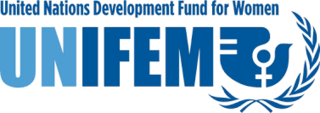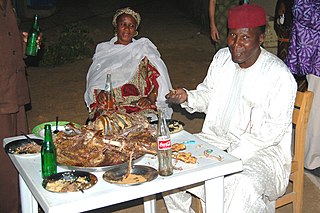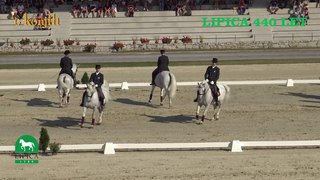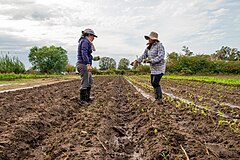December 1, "Freedom and Democracy Day", remembers December 1, 1990 and celebrates the ascent of President Idriss Déby to power.

The United Nations Development Fund for Women was established in December 1976 originally as the Voluntary Fund for the United Nations Decade for Women in the International Women's Year. Its first director was Margaret C. Snyder. UNIFEM provided financial and technical assistance to innovative programmes and strategies that promoted women's human rights, political participation and economic security. Since 1976 it supported women's empowerment and gender equality through its programme offices and links with women's organizations in the major regions of the world. Its work on gender responsive budgets began in 1996 in Southern Africa and expanded to include East Africa, Southeast Asia, South Asia, Central America and the Andean region. It worked to increase awareness throughout the UN system of gender-responsive budgets as a tool to strengthen economic governance in all countries. In 2011, UNIFEM merged with some other smaller entities to become UN Women.
The Gayssot Act or Gayssot Law, enacted on 13 July 1990, makes it an offence in France to question the existence or size of the category of crimes against humanity as defined in the London Charter of 1945, on the basis of which Nazi leaders were convicted by the International Military Tribunal at Nuremberg in 1945–1946.

The government and people of Niger observe twelve official public holidays. These include international commemorations, the commemoration of important dates in the history of Niger, and religious holidays. Both Christian and Muslim holidays are observed as official public holidays.
The Commission nationale consultative des droits de l'homme is a French governmental organization created in 1947 by an arrêté from the Ministry of Foreign Affairs to monitor the respect for human rights in the country. It may acts as counsellor for the government and propose laws, and then survey the application of governmental measures and laws voted in Parliament.
Brazil is a full member of the United Nations. It has participated in peacekeeping operations with the UN in the Middle East, the former Belgian Congo, Cyprus, Mozambique, Angola, and more recently East Timor and Haiti. Brazil has been regularly elected as a non-permanent member to the Security Council since its first session in 1946 and is now among the most elected UN member states to the UNSC. Brazil was elected to become a member of the 15-country UN Security Council for the two-year term of 2022–23.
Zangasso is a small town and commune in the Cercle of Koutiala in the Sikasso Region of southern Mali. The commune covers an area of 452 square kilometers and includes 10 settlements. In the 2009 census it had a population of 19,925. The small town of Zangasso, the administrative centre (chef-lieu) of the commune, is 30 km southwest of Koutiala on the Route Nationale 11 that links Koutiala with Sikasso.
Anéfis or Anefif is a Saharan village and commune in the Cercle of Kidal in the Kidal Region of north-eastern Mali.

The Provence Donkey, French: Âne de Provence, is a breed of domestic donkey from Provence, in south-eastern France. It is now distributed through much of central and south-east France, with the highest concentration in Provence and the Rhône-Alpes region. For hundreds of years the Provence donkey was used by transhumant shepherds of the area as a pack animal in the seasonal movement of flocks of sheep between their summer pastures on the high Alps of Haute-Provence and the Dauphiné and their winter grounds in Basse-Provence.
René Truhaut was a French toxicologist. He was made chairman of the department of toxicology at the Paris Faculty of Medicine. He is known for having introduced the concept of daily intake in 1956, and for coining the term "ecotoxicology" which defined it as "the branch of toxicology concerned with the study of toxic effects, caused by natural or synthetic pollutants, to the constituents of ecosystems, animal, vegetable and microbial, in an integral context”.
Cairn.info is a French-language web portal, founded in 2005, containing scholarly materials in the humanities and social sciences and recently scientific, technical, and medical sciences. Much of the collection is in French, but it also includes an English-language international interface to facilitate use by non-francophones. Primary research areas include communications, economics, education, geography, history, literature, linguistics, philosophy, political science, law, psychology, sociology, and cultural studies. The site provides gratis open access to some publications.

Louise Toupin is a Canadian political scientist and specialist in feminist studies. She was a founding member of the Women's Liberation Front of Quebec and Éditions du remue-ménage, which were important sites of feminist activism in the late 1960s and early 1970s in Montreal. She then earned a PhD from the Université du Québec à Montréal, later becoming a lecturer at that same institution. Her research focused on collections and analyses of feminist theory from the recent history of Québec.

Christiane Lambert is a French farmer and agricultural trade unionist who has headed the Fédération Nationale des Syndicats d'Exploitants Agricoles since 2017. In 2020, she became the president of the Comité des Organisations Professionnelles Agricoles - Comité Général de la Coopération Agricole de l'Union Européenne.
Bertille Marcos Guèdègbé is a Beninese agricultural engineer and entrepreneur. She is President of the Cooperative of Benin's Pineapple Producers, Exporters, and Processors.
Mohamed Sadiki is the Moroccan Minister of Agriculture, Maritime Fisheries, Rural Development, and Water and Forests. He was appointed as minister on 7 October 2021.
Mariama Camara is a Guinean politician and businesswoman. She is a former Minister Agriculture, and Minister of Trade,.

Horses in Slovenia are represented above all by the traditional Lipizzan breed, inherited from Austria-Hungary; like Austria, Slovenia claims the Lipizzan as its national symbol. Horses have long been present on Slovenian territory; draft horses suffered a sharp decline in the 20th century, with only the native breeds of Slovenian Cold-blood and Posavina surviving. Slovenian breeders also have sport horses, such as the Slovenian Saddlebred and the Ljutomer Trotter. Slovenians distinguish their native horse breeds from traditional breeds.
Óscar Humberto Évora Santos in Lém Ferriera, Cabo Verde is a Cape Verdean politician and the Governor of the central Bank of Cape Verde.
Zakiatou Djamo is a Cameroonian politician. She held the position of comptroller of the treasury in the government. In April 2018, she was elected as a senator to the Parliament of Cameroon.
Radio Begum is an Afghan radio station made by women, for women. It was created on 8 March 2021 to coincide with International Women's Day by Afghan entrepreneur and journalist Hamida Aman, and is run by Begum Organization for Women which had been founded on 8 December 2020. It broadcasts live and continuously on Facebook, to Kabul and more rural surroundings, covering approximately three quarters of the country. On 8 March 2024 its sister broadcaster Begum TV was launched in Paris with a grant from Malala Fund, to provide video courses covering the Afghan school curriculum from 7th to 12th Grade by satellite.






